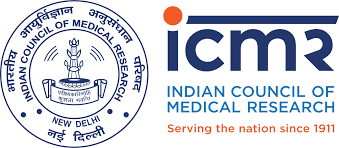
ICMR Assistant Exam Syllabus 2020 2021 | ICMR Assistant Syllabus and Exam Pattern are given on this page. So, candidates who are searching for the ICMR Syllabus 2020 they can collect full PDF on this page. ICMR Assistant Syllabus plays a prominent role in any exam preparation. Without having ICMR Assistant syllabus and Exam pattern nobody can know which subjects to prepare for the examination. You can check all details of ICMR Syllabus here. Are you looking for the free download? Then go through this section.
ICMR Assistant Selection Process:
The Selection Procedure of the Exam will be as follows:
- Written Exam Written Test in Computer Based Mode consisting of Objective Type Multiple Choice Questions.
- Document Verification
Cities/Centers For Computer Based Test:
- Agra (U.P) 2. Ahmedabad (Gujarat) 3. Ambala (Haryana) 4. Belagavi (Belgaom) 5. Bengaluru 6. Bhopal 7. Bhubaneswar 8. Chandigarh (Tricity) 9. Chennai 10. Delhi (NCR) 11. Dehradun (Uttarakhand) 12. Dibrugarh (Assam) 13. Gaya (Bihar) 14. Guwahati 15. Hamirpur (Himachal Pradesh) 16. Hyderabad 17. Jabalpur (M.P) 18. Jalandhar (Punjab) 19. Jodhpur 20. Kolkata 21. Kottayam (Kerala) 22. Lucknow 23. Madurai 24. Mumbai 25. Nagpur 26. Noida 27. Patiala (Punjab) 28. Patna 29. Pune 30. Raipur (Chhattisgarh) 31. Ranchi (Jharkhand) 32. Srinagar (Kashmir) 33. Thiruvananthapuram 34. Varanasi 35. Vijayawada
Indian Council of Medical Research Assistant Exam Details:
The written examination (in English language only) would be of 80 minutes duration and will consist of 80 multiple choice objective type questions. Each question shall be of one mark. There will be a negative marking to the extent of 0.25 marks per question for a wrong response. During these 80 minutes the candidates will be required to undergo biometrics test or photo matching as to check any impersonation in the examination.
The Qualifying marks for written test / skill test shall be 50% for UR/OBC/EWS and 40% for SC/ST/PwBD category. As the Government of India has dispensed with the holding of interview for Group ‘B’ and ‘C’ (non-gazetted) posts, there will be no interview for these posts and the candidates will be selected on the basis of merit in the written examination and skill test only
On the basis of written examination, candidates, five times of the vacancies advertised will be short-listed. The result of the written examination for short listing of the candidates will be uploaded through a notice on the website i.e. www.icmr.nic.in and www.pgimer.edu.in of the Institute within one week of the date of holding written examination.
Scheme of test:
The details of subjects, marks and number of questions (MCQ) subject-wise will be as given below:
– 80% marks/weightage will be for the written/Computer Based Test (MCQs).
– There will be negative marking of 0.25 marks for each wrong answer.
– Marks scored by candidates in Computer Based Test will be normalized by using the formula published by the Govt of India, through Notice No: 1-1/2018-P&P-I dated 07- 02-2019 and such normalized scores will be used to determine final merit and cut-off marks. For the purpose of normalization, VH candidates will be considered only with the candidates of main shift.
– For VH candidates of 40% and above visual disability, there will be no component of Maps / Graphs/ Diagrams / Statistical Data in the General Intelligence / Quantitative Aptitude subjects.
– Skill Tests where prescribed in the Essential Qualification, will be conducted and 20% marks / weightage would be given.
– Indicative Syllabus for Computer Based Test. Question papers will be in English language only. Questions may be picked up from among the following subjects / specialties.
General Intelligence: It would include questions of both verbal and non-verbal type. This component may include questions on analogies, similarities and differences, space visualization, spatial orientation, problem solving, analysis, judgment, decision making, visual memory, discrimination, observation, relationship concepts, arithmetical reasoning and figural classification, arithmetic number series, non-verbal series, coding and decoding, statement conclusion, syllogistic reasoning etc. The topics are, Semantic Analogy, Symbolic/Number Analogy, Figural Analogy, Semantic Classification, Symbolic/ Number Classification, Figural Classification, Semantic Series, Number Series, Figural Series, Problem Solving, Word Building, Coding & de-coding, Numerical Operations, symbolic Operations, Trends, Space Orientation, Space Visualization, Venn Diagrams, Drawing inferences, Punched hole/ pattern – folding & un-folding, Figural Pattern – folding and completion, Indexing, Address matching, Date & city matching, Classification of centre codes/ roll numbers, Small & Capital letters/ numbers coding, decoding and classification, Embedded Figures, Critical thinking, Emotional Intelligence, Social Intelligence, Other sub-topics, if any.
General Awareness: Questions will be designed to test the general awareness of the environment and its application to the society. Questions will also be designed to test knowledge of current events and of such matters of every day observations and experience in their scientific aspect as may be expected of any educated person. The test will also include questions relating to India and its neighbouring countries especially pertaining to History, Culture, Geography, Economic Scene, General Polity& Scientific Research.
Quantitative Aptitude: The questions will be designed to test the ability of appropriate use of numbers and number sense of the candidate. The scope of the test will be computation of whole numbers, decimals, fractions and relationships between numbers, Percentage, Ratio & Proportion, Square roots, Averages, Interest, Profit and Loss, Discount, Partnership Business, Mixture and Alligation, Time and distance, Time & Work, Basic algebraic identities of School Algebra & Elementary surds, Graphs of Linear Equations, Triangle and its various kinds of centres, Congruence and similarity of triangles, Circle and its chords, tangents, angles subtended by chords of a circle, common tangents to two or more circles, Triangle, Quadrilaterals, Regular Polygons, Circle, Right Prism, Right Circular Cone, Right Circular Cylinder, Sphere, Hemispheres, Rectangular Parallelepiped, Regular Right Pyramid with triangular or square base, Trigonometric ratio, Degree and Radian Measures, Standard Identities, Complementary angles, Heights and Distances, Histogram, Frequency polygon, Bar diagram & Pie chart.
English Language: Candidates’ ability to understand correct English, his basic comprehension and writing ability, etc. would be tested.